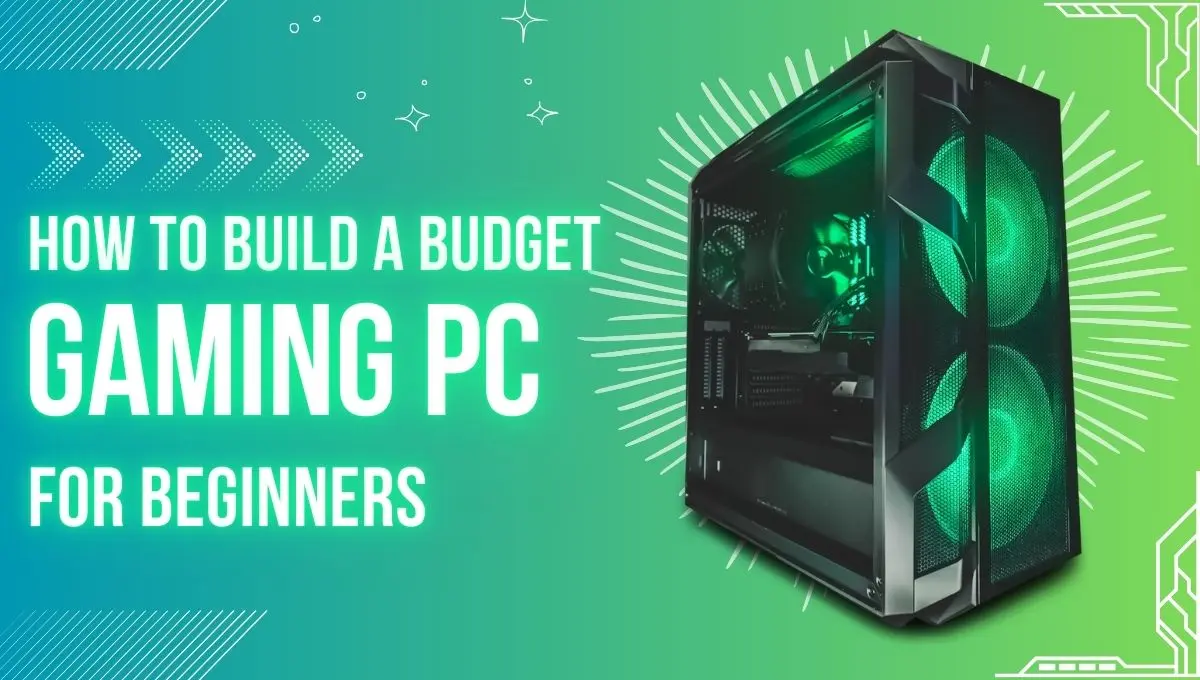Are you on a tight budget but still want to enjoy PC gaming? You can build a strong gaming PC for under $500. It might not be as powerful as the expensive ones, but it can still offer a great gaming experience.
By picking the right parts and knowing what to use, you can make a budget-friendly PC that’s both fun and affordable.
Key Takeaways
- Building a powerful gaming PC for under $500 is possible, but it may not match the performance of higher-end systems.
- Affordable PC cases, lighting options, and color-coordinated components are available for budget-conscious builders.
- Carefully select the right motherboard, CPU, graphics card, RAM, and storage that can result in a cost-effective and impressive gaming setup.
- Understanding the differences between resolution, refresh rate, and game requirements is crucial for choosing the right components.
- Patience and a willingness to research and compare options can help you build a low-cost gaming PC that meets your needs while remaining within your budget.
Decide on Your Budget and Performance Needs
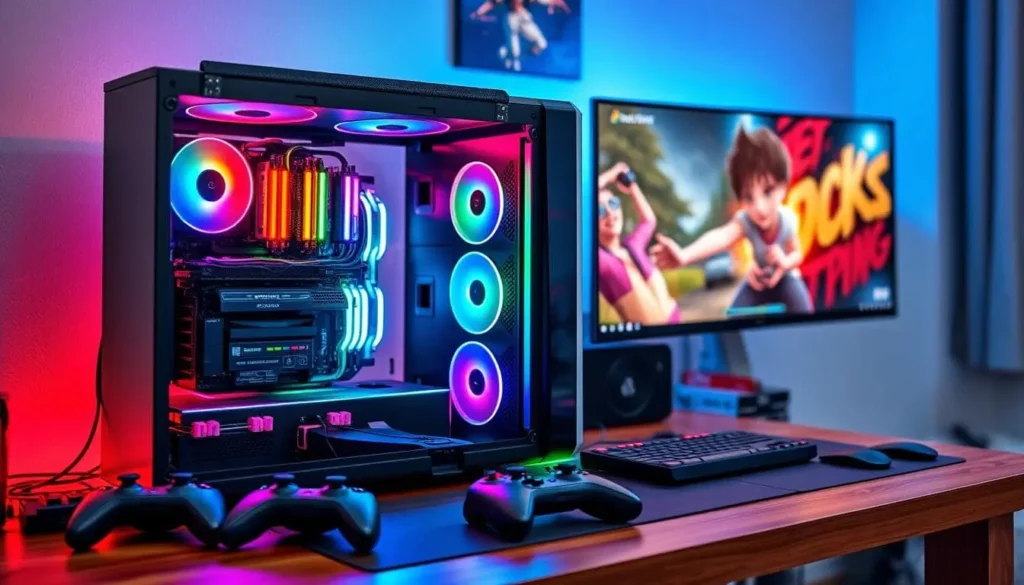
When you start building a budget gaming PC, finding the right balance is key. A desktop like the best $1,000 PC build costs around $1,439 at Best Buy.
But, If you build your own, it can save you hundreds. There are parts lists for all budgets, from under $500 to over $4,000, so you can find what fits your budget.
Understand the Differences Between Resolution and Refresh Rate
It is a very crucial decision between choosing screen resolution and refresh rate. Higher resolutions, such as 1440p or 4K, are appealing on a large scale, but it might even make your games rough.
Some experts suggest 1080p and 60-144Hz for a great gaming experience without too much burn in the pocket.
Identify the Games You Want to Play and Their System Requirements
First of all, decide what type of system your games need so you can pick the right CPU, GPU, and more. Matching up your hardware with your gaming needs is very crucial for achieving the best performance within your budget.
| Budget Range | Recommended Components | Total Cost |
| $500 | Intel Core i3-14100F CPU ($124), ASRock B760M-HDV motherboard ($89), Intel Arc A380 GPU ($109), Silicon Power Value Gaming DDR4-6400 RAM 16GB ($28), Crucial P3 Plus 1TB storage ($59), Cooler Master MasterBox Q300L case ($37), Thermaltake Smart Series 500W PSU ($39) | $485 |
| $800 | Intel Core i5-14400F CPU ($199), ASRock B760M-HDV motherboard ($89), Nvidia RTX 4060 GPU ($286), TeamGroup T-Force Vulcan Z DDR4 32GB RAM ($50), Samsung WD Black SN770 1TB storage ($74), Gamdias Aura GC1 case ($49), Thermaltake Smart 700W PSU ($54) | $801 |
Keep in mind, that building a gaming PC by yourself can take time but, it can save you hundreds over buying a prebuilt system.
How to Choose the Right Components for a Gaming PC?
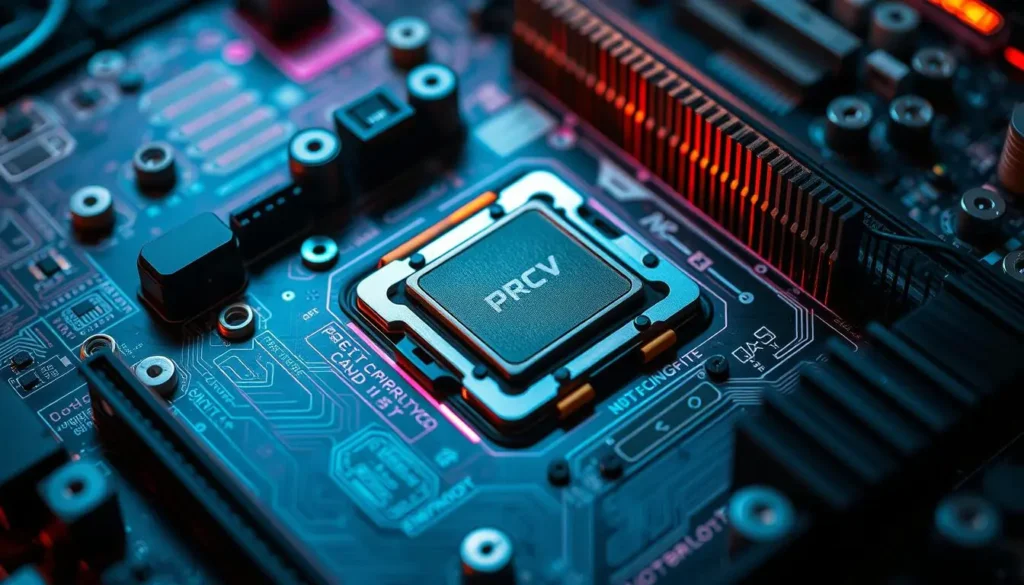
If you want to build a budget gaming PC, it means picking up the right parts. You need to balance cost and performance. Let’s look at the key choice for your motherboard, CPU, graphics card, RAM, and storage.
Select a Compatible Motherboard and CPU
The motherboard and CPU are crucial. Make sure they work well together. A Micro-ATX motherboard is a good choice for saving money without sacrificing too much.
For the CPU, the Intel Core i3 or AMD Ryzen 5 series is a great option. They offer good gaming performance without breaking the bank.
Pick a Graphics Card Within Your Budget
The graphics card is very important for gaming. It is not necessary to buy high-end expensive GPUs but there are budget friendly options available.
Take a look at the NVIDIA GeForce GTX 1050 Ti or AMD’s Radeon RX 570 if you’re looking for good value.
Instead of buying new ones figure out used GPUs or check out lesser-known brands that fit within your budget.
Determine the Appropriate RAM and Storage Options
For gaming, it’s very important to have at least 16GB of RAM. Dual-channel DDR4 is usually the best choice.
When it comes to storage, use a fast SSD for your OS and programs because it speeds up the system.
Meanwhile, a larger HDD is good for keeping your files. Just be sure your motherboard supports whatever storage is.
| Component | Recommendation |
| Motherboard | Micro-ATX for a budget build |
| CPU | Intel Core i3 or AMD Ryzen 5 series |
| Graphics Card | NVIDIA GTX 1050 Ti or AMD RX 570 |
| RAM | 16GB dual-channel DDR4 |
| Storage | SSD (SATA or M.2 NVMe) for OS, HDD for file storage |
How to Build a Budget Gaming PC?
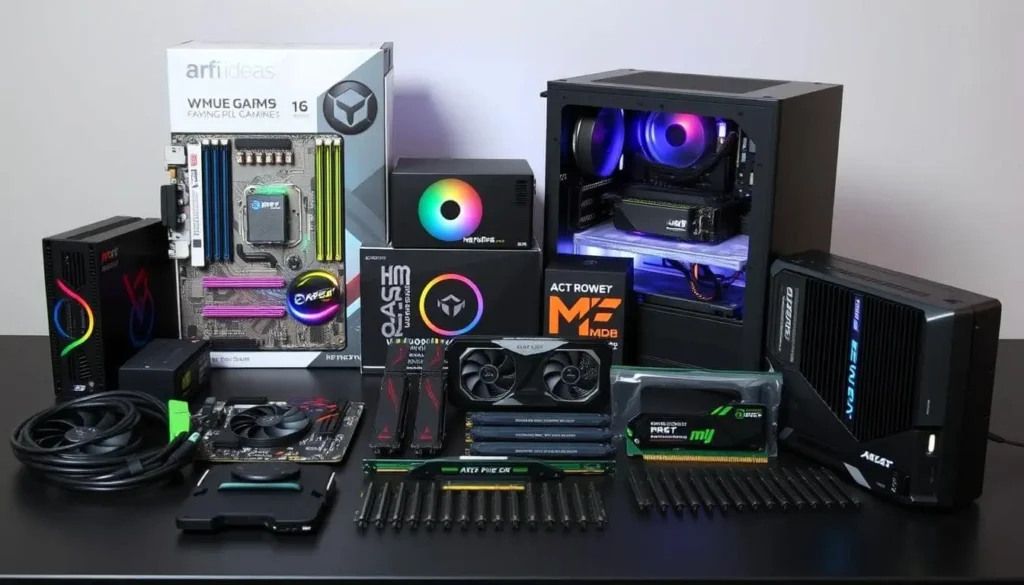
Building a budget gaming PC might be a bit difficult, but it’s really not too hard with the right kind of help. You just need to start by getting all the parts and tools that you’ll need.
After that, you can follow the step-by-step guides to put everything together. Make sure to pay attention to how the parts fit together, and managing the cables properly is also important.
If you follow these tips, you’ll end up with a gaming PC that’s affordable and powerful at the same time. Reddit and YouTube have got lots of guides to help you build your PC.
They go over important steps like choosing the right motherboard, CPU, graphics card, RAM, and storage. These choices should be based on your gaming needs and budget.
- Start by choosing your major components, ensuring that they work well together and fit your budget. Look for a motherboard and CPU that match, a graphics card that is suited for you, and just the right RAM and storage.
- Then, do think about the case and the power supply. It’s all about the size, airflow, and wattage to keep your build stable and cool.
- Lastly, use guides, build your PC step by step, and take care of cable management and best practices. Test your build before putting it in the case.
Keep in mind that breaking down the process into small steps and using online resources can help you build a budget gaming PC. This PC will offer great value and performance.
How to Select the Right Case and Power Supply?
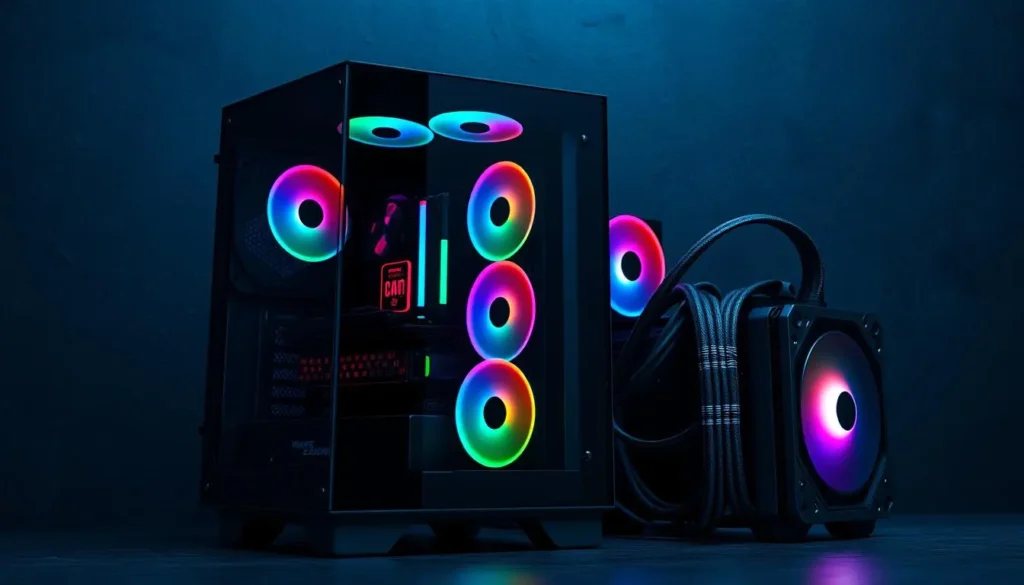
When building a budget gaming PC, picking the right PC case and power supply unit (PSU) is crucial.
The case should fit your components and focus on airflow for cooling. Choose a mid-tower or compact ATX case with good cable management and airflow.
Consider the Size and Airflow of the Case
The case size matters as it must fit your motherboard. A too-large case can hurt airflow, while a too-small one might lack space for cables. Make sure the case has fans and vents for the best airflow.
Choose a Power Supply Unit with Sufficient Wattage
The PSU is essential for powering all your components. Choose a PSU with enough wattage for your CPU, GPU, and other parts. Add 100-200 watts of extra power for safety.
Also, consider a modular PSU for easier cable management, though non-modular ones can be budget-friendly.
By picking the right PC case and power supply, you’ll build a budget gaming PC that’s efficient and reliable. This focus on detail ensures your system runs smoothly for years.
Assemble Your Budget Gaming PC
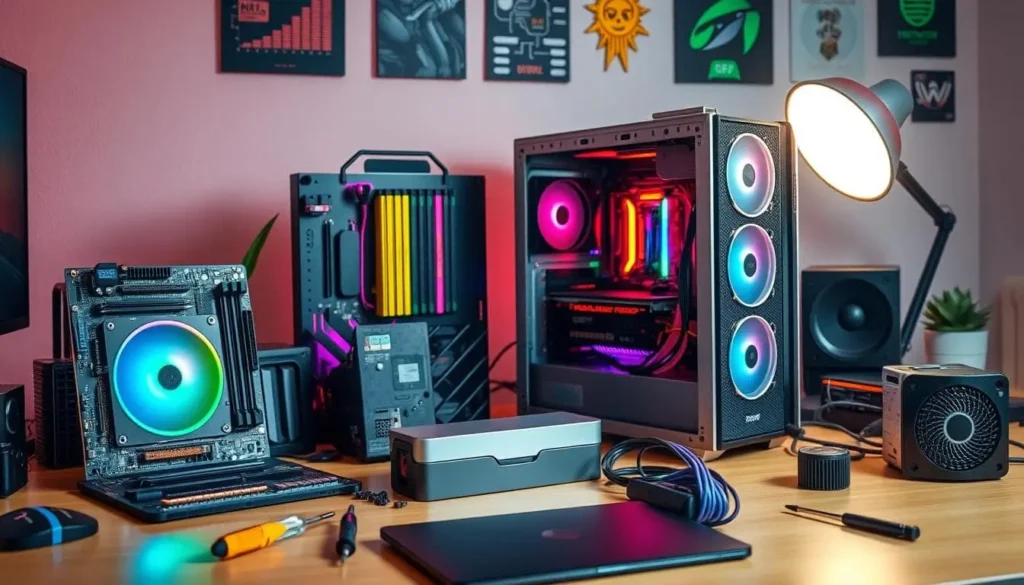
When you’re building your budget gaming PC, it’s really important to follow detailed PC assembly guides and watch some instructional videos.
So, that the build goes smoothly. Websites and YouTube channels have step-by-step tutorials on how to install components and manage cables.
Plus, online communities like Reddit’s /r/buildapc also give you valuable insights and help with troubleshooting.
Before you put the parts into the case, you should test them outside first. This step checks if all the parts are working well together.
If any problems come up, it’s easier to fix them when the system isn’t fully built. After you’re sure everything works, then you can go ahead and put the parts into the case.
Follow Detailed Guides and Videos
- Use online PC assembly guides and tutorials from trusted sources for a successful build.
- Join online communities like Reddit’s /r/buildapc for helpful troubleshooting advice.
Test Your Build Before Installing in the Case
- Do an initial test build outside the case to ensure that all parts work together.
- Fix any issues easily when the system is not fully built.
- Once confirmed, install the PC into the case.
| Component | Price |
| AMD APU 2200G | $99.99 |
| MSI B350 PC MATE Motherboard | $70.00 |
| Corsair LPX 8GB RAM Kit | $160.00 |
| ZOTAC GTX 1060 Mini 6GB | $280.00 |
| Corsair Force LE 120GB SSD | $60.00 |
Building a budget gaming PC is both exciting and rewarding. A successful assembly can be achieved by following detailed guides, joining online communities, and testing your build. This allows you to quickly set up your new budget gaming PC.
The Bottom Line
Building a budget gaming PC is super fun and rewarding. You can enjoy great gaming without spending too much.
If you pick the right parts, like an AMD Ryzen 5 5600X or Intel Core i5-12600K CPU, you can easily build a powerful yet cheap gaming machine.
The joy of building your own PC is hard to beat, and honestly, it’s not that hard even for beginners with all the tools out there nowadays.
There are so many guides and videos available on the internet to help, like Paul’s Hardware, BitWit, and ROBEYTECH. Just follow along and you’ll end up with a gaming PC that’s not only fun to use but makes you feel proud.
I hope the guide was helpful and interesting. Please, share it and join us on Arfi Ideas for the latest updates.
FAQs On How to Build a Budget Gaming PC for Beginners
1. Is $1000 a good budget for a gaming PC?
Yes, $1,000 is an excellent budget for a gaming PC. It enables you to create a powerful system capable of handling most modern games on high settings. You can even consider securing your setup by selecting components that can be upgraded later.
2. Can I build a PC in 20k?
Building a PC for Rs 20,000 is difficult, but possible with careful component selection and potential compromises. To stay within budget, consider purchasing used or repaired parts, older generation components, or lower-end options.
3. How much does the average person spend on a gaming PC?
The average person spends between $700 and $1,200 on a gaming PC. However, the price can vary depending on the components and desired performance level.
4. What are the best gaming PC brands?
The best gaming PC brands are Alienware, Razer, and Origin PC. They provide high-quality components and excellent performance.
5. Is it possible to build an ultra-budget gaming pc for less than $200?
Yes, it is possible to build an ultra-budget gaming PC for less than $200. However, the performance will be very limited, and you will only be able to play older games or low-demand indie games.
